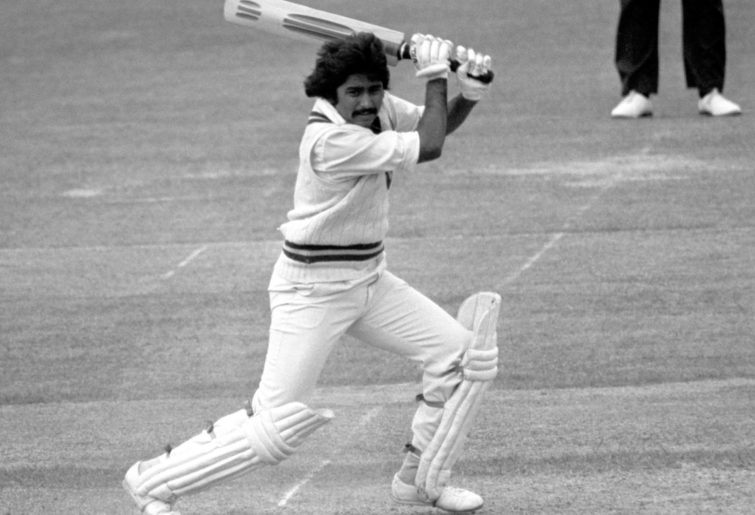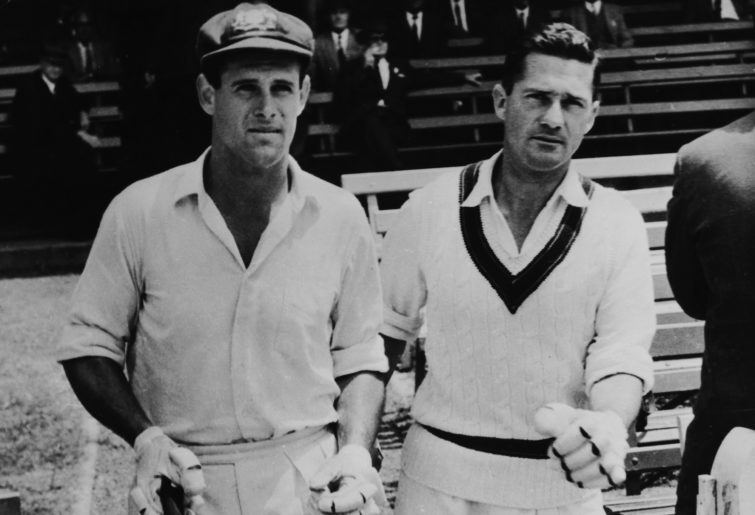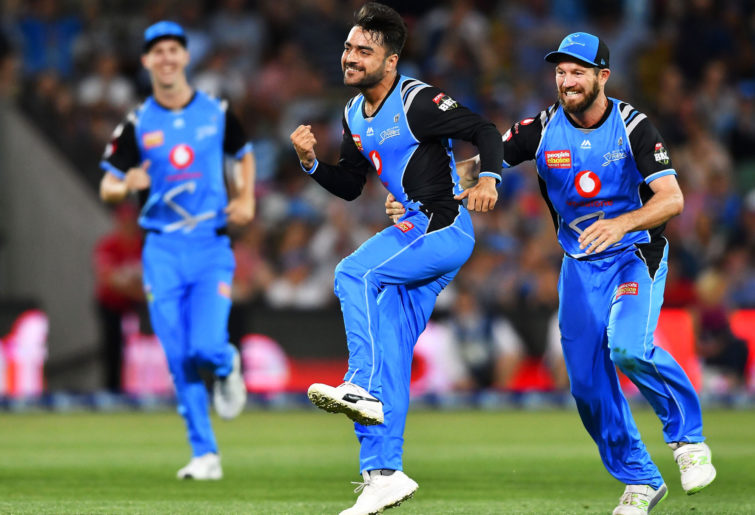Much has been written about the one-Test wonders of Test cricket.
Roughly one in eight Test cricketers end their career with just one Test. But what about one-Test captains – people who have captained their country for only one Test.
I have checked the lists and there are 45 players who have captained their team in just one Test. This list include many greats of the game like George Headley and Ray Lindwall. At the other end, there is Chris Cowdrey of England, who probably wasn’t good enough to play Test cricket. There are four current players in the list: Tamim Iqbal (Bangladesh), Rashid Khan (Afghanistan), Tom Latham (New Zealand) and Sean Williams (Zimbabwe).
England tops the list with ten members. The West Indies have eight, three of them in one Test series against England in 1929-30. Australia and South Africa are joint third with six each. Sri Lanka and Ireland have no representatives. Pakistan and Afghanistan have one each: Shahid Afridi and Rashid Khan respectively.
Here, I have formed a playing XI out of these one-Test captains. I will start with a legend in West Indies cricket.
Gordon Greenidge
A regular feature of the West Indies team between 1974 and 1991 except the Kerry Packer years, he was a key member of the all-conquering West Indies team of the 1980s. He had plenty of happy memories playing for the West Indies. Unfortunately his only Test captaincy experience wasn’t among those.
Viv Richards’ absence meant that he was given the captaincy duty for the Guyana Test against Pakistan in 1988. He won the toss and decided to bat first. In perfect batting conditions, the Windies batted in an aggressive manner. Perhaps it was a bit too aggressive for Test cricket.
Richie Richardson scored 75 from 84 balls and Gus Logie scored 80 from 96. But then Imran Khan, the opposition captain, got the ball to reverse swing after tea and the West Indies were bowled out for 292. A century by Javed Miandad gave Pakistan the initiative and they won by nine wickets.

(S&G/PA Images via Getty Images)
This was the Windies’ only Test defeat at home during the 1980s. With Phil Simmons opening the batting with Desmond Haynes, Greenidge batted at number four in this match. He scored 17 and 43 in the match.
Tamim Iqbal
Tamim’s record of more than 4000 runs at an average of almost 40 is pretty impressive. But there is scope for improvement, especially in his conversion rate. He has nine hundreds and 27 fifties.
He is now the ODI captain of the Tigers. His only experience as a Test captain wasn’t a happy one. In Christchurch in 2017, he scored five and eight as NZ won by nine wickets. Tim Southee and Trent Boult blew away our top order.
Tamim comes from a strong cricketing background. His uncle Akram Khan was the captain of the Bangladesh team that won the 1997 ICC Trophy to qualify for the 1999 World Cup. Interestingly, the coach of the team was Gordon Greenidge.
Neil Harvey
After scoring six hundreds in his first 13 Test innings, Harvey remained an integral part of the Australia team throughout the 1950s, ending his career with 79 Tests and more than 6000 runs.
I find it a bit surprising that he wasn’t considered for regular captaincy. Perhaps after three successive Ashes defeats in the middle of the decade, a rebuild was required and someone like Richie Benaud was more suitable for this job.
It was Benaud’s shoulder injury that gave Harvey his chance as a captain at Lord’s in 1961. Fine bowling by the new-ball bowlers Alan Davidson and Graham McKenzie combined with a hundred by Bill Lawry helped Australia win the match by five wickets. Harvey’s own contribution was minimal: 27 and four.

Norm O’Neill (left) and Neil Harvey (right) are cricket legends. (Photo by Keystone/Hulton Archive/Getty Images)
George Headley
The first of many great batsmen to emerge from the Windies, this man scored more than 2000 runs in 22 Tests with an average of 60. If we exclude his five innings after World War II, his average becomes 66.
However, it was after the war, in 1948 in Bridgetown, that he became the first black captain of the West Indies. Well past his best, he scored 29 and seven not out in the drawn match. Interestingly, it was also the only Test as England captain for Ken Cranston. The Lancashire fast bowler deputised for the injured Gubby Allen.
Sir Clyde Walcott, Sir Everton Weekes and Jim Laker all made their debut in this Test.
Tom Graveney
While many critics often complained that he was unable to carry his county form into Tests, Graveney ended his career of almost two decades with almost 5000 runs and an average of 44.
His only Test as England captain came at Headingley in the Ashes series of 1968. It was a pretty uneventful drawn Test.
Ravi Shastri
There were quite a few candidates for the all-rounder’s job, but after considering Shahid Afridi (Pakistan), Shane Watson (Australia) and Gerry Gomez (West Indies), I have selected Shastri for the job.
After starting his career as a slow left-arm spinner, he mainly became a batsman, often opening the innings.
At one stage it appeared that he was developed as the future skipper of India. He captained the under-25 team and then worked as the deputy for both Kapil Dev and Dilip Vengsarkar. But he ended up leading India in only one Test.
His opportunity came in Madras in 1988 after Vengsarkar was hit in the head by a bouncer from Winston Davis in the third Test at the Eden Gardens.
On an under-prepared wicket, winning the toss and batting first was vital, and Shastri did just that. Leg-spinner Narendra Hirwani then did the rest, taking 16 wickets in his debut match.
Ian Smith
Ian Smith came in to the NZ team in the early 1980s as the team was about to start a very successful era in Kiwi cricket history. The team had only two superstars – Richard Hadlee and Martin Crowe – but there were quite a number of players like Smith who just happily went along with their job without demanding much attention.
Smith got his chance to lead his side in Auckland in the third Test of the 1991 home series against Sri Lanka. His bold decision to put the Lankans in didn’t work very well, and in the end the Kiwi team without their star batsman Crowe was happy to see the match end in a draw. Aravinda de Silva was in superb form with the bat, scoring 96 and 123.
The series ended 0-0. Sri Lanka were still fairly new to the Test arena, and the Kiwis were rebuilding in the post-Hadlee era.
Ray Lindwall
Australia’s premier fast bowler of the era was entrusted with the captaincy of the team in the second Test of the three-match series in Bombay in 1956. He led a group of cricketers who were badly homesick.
Fine hundreds by opener James Burke and number three Neil Harvey gave Australia a massive first-innings lead. But India batted well in their second innings to force a draw.
Sir Charles Aubrey Smith
A Cambridge Blue, Smith led England to an eight-wicket victory over South Africa in 1889 in his only Test match. A right-arm fast bowler, he took seven wickets for 61 runs in the match with 5-19 in the first innings.
He ended his England career early to pursue his career as an actor. After gracing the theatre stages of the West End for a quarter of a century he moved to the Hollywood to start a successful movie career. In 1932, he formed the Hollywood Cricket Club whose players included David Niven and Laurence Olivier.
Rashid Khan
Just 21, it’s still very early days for Rashid. In his four Tests, he has taken 23 wickets at 21 apiece. His leg spin has helped Afghanistan record victories over Ireland and Bangladesh.

Rashid Khan isn’t just a white-ball specialist. (Photo by Mark Brake – CA/Cricket Australia/Getty Images )
His Test captaincy debut wasn’t a happy one. In Lucknow last November, off-spinner Rahkeem Cornwall took a ten-wicket haul as the Windies won by nine wickets.
Buster Nupen
Nupen, the Norway-born South African fast bowler, played 17 Tests for South Africa between the wars.
His Test record of 50 wickets at 35 apiece is not very impressive, but his record for SA and Tranvsaal is extraordinary. He made pace bowling an art.
He had a memorable Test as captain at his favourite Johannesburg ground against England in 1930. He had match figures of 11-150 as the hosts won by 28 runs.































































































